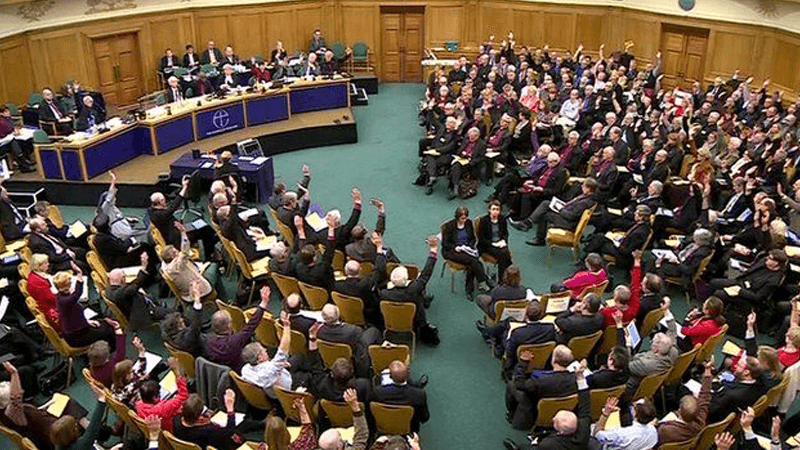Prominent figures in the Church of England (CofE) have warned of a growing schism between members who affirm the Bible and those who have “capitulated to secular values”.
In a letter to The Daily Telegraph today, more than 20 Anglicans, including Bishop Michael Nazir-Ali and former Queen’s Chaplain Gavin Ashenden, argue that there are “now effectively two opposed expressions of Anglicanism in this country”.
The signatories say that recent events at the General Synod, the CofE’s governing body, have caused many Anglicans “great concern”.
‘Secular values’
Earlier this year, the General Synod held discussions on a controversial report concerning sexuality which backed traditional marriage but also called for “maximum freedom” for homosexual people.
This month, the Synod supported a call for the House of Bishops to consider endorsing “gender transition”.
In their letter today, the signatories say that the CofE has formed into two camps, with one side ‘capitulating to secular values’, and the other continuing to ‘hold to the faith’.
Scripture first
They state: “We and others stand with the majority of faithful Anglicans across the globe, in prioritising Scripture and the unanimous teaching of the universal Church over secular fashion.”
Referring to the Anglican Church in North America (ACNA), which emerged from the Episcopal Church over increasingly liberal teaching in 2009, they conclude:
“We note the results of this same conflict in North America, even as we look for and pray for a similar renewal of orthodox Anglicanism and of Anglican structures in these islands.”
Sexuality report
In February this year, the General Synod voted against a report on marriage and homosexuality.
Critics said the House of Bishops’ report was very confusing because although it left the definition of marriage intact, it also backed a greater role for practising homosexuals in the Church.
Evangelical CofE minister Melvin Tinker, one of the signatories to today’s letter, described it as ‘looking both ways’ on sexuality.
He said it gave the impression of “business as usual” while also moving in a revisionist direction.

